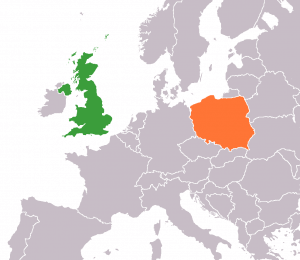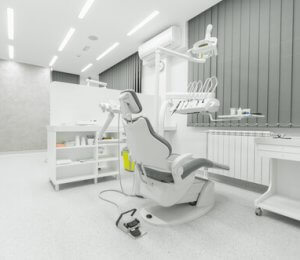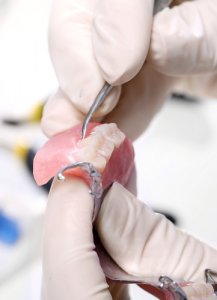Why are so many people travelling to get dental treatment in Poland? Simple: to save money. Treatment such as crowns, veneers and dental implants in Poland can cost 50-75% less than in the UK. And, with cities like Warsaw and Krakow so easily accessible, visiting a Poland dentist could be less hassle than you realise.
If you’re considering dental tourism in Poland, there is a lot to think about. You’ll want to calculate the total cost of your trip, understand what to expect from your treatment, and find a reputable dentist.
This article contains information to help you make important decisions about getting major dental work such as dental implants in Poland. You can read about other patients’ experiences which they shared in their reviews of Poland dental travel. You’ll also find some advice and tips for when you start planning your trip.
We have included a table with approximate Poland dental costs further down this article to help you decide whether it’s worth travelling abroad for your work.
In This Article
Why go abroad for dental care?

With the cost of private dental treatment in the UK so high, many Brits have started visiting overseas destinations for dental work. This practice has become known as ‘dental tourism‘.
Dental tourism in Poland, Hungary, Turkey, and other Eastern European countries has become especially popular because flights from the UK are so cheap. And with dental treatment available for half the price you’d pay in the UK (or even less), you can factor in the cost of accommodation and flights and still save plenty of money.
Some patients choose more exotic destinations, visiting a dentist in Thailand or Mexico, to make it a ‘dental holiday’. Flights to these locations may not be so cheap, but you can enjoy a couple of weeks on a beach before getting your teeth fixed.
It’s difficult to know exactly how many Brits get dental treatment in Poland and other foreign countries each year as this is not something that clinics have to report on. However, medical tourism figures showed that over 100,000 foreigners opted for dentistry in Poland in 2012.

Why get dental treatment in Poland?
Since Poland is a member of the EU, any dentists practising there must conform to strict regulations. You can expect to find clinics there which are modern, clean, and equipped with cutting-edge equipment. All of this can be achieved at a fraction of the cost of UK clinics because of the weaker economy.

The Polish public healthcare system offers similar provisions to the NHS. Certain treatments are provided for free to all patients via public dentists. However, these are often subject to long waiting times and may not be the most aesthetic option. For example, dental implants in Poland are usually not free to residents, and government-funded restorations may be done with the most economical material.
Poles may also opt for private treatment, which must be paid for in full but offers better standards of dentistry. Waiting times are much shorter and patients are able to choose from higher-quality finishes for their dental work (much like in the UK).
Dental tourists can piggyback on this system, taking advantage of the high standards of care and dentistry in Poland for a comparatively low price.
And it’s not just Brits who can see the value in travelling overseas for treatment. Dental clinics in Poland welcome many patients from Germany, Belgium, Switzerland, Sweden and the USA.
There is a stronger emphasis on service than you would expect to find in the UK, too. Many clinics that cater to dental tourists offer a complete package that includes airport pickup and accommodation close to the clinic (or even on-site). This takes all the worry and hassles out of having to organise a trip abroad.
Education of dentists in Poland
To become a qualified dentist in Poland, students must first undergo five years of training at university. There are several universities in various cities offering this course, but places are limited and competition is high. The below video from Poznan University of Medical Science shows why one American student chose to study there:
These medical centres are equipped with the newest technology to ensure dental students are trained to modern standards. Courses are often taught in English, but any students learning in Polish must study English or another foreign language as part of their course. This means that most Polish dentists speak English well.
After completing their five-year course, graduates begin a 12-month work experience program. During this time they are only able to perform treatments under supervision. Following this, they must pass another exam in order to become fully qualified.
If a dentist wishes to specialise in a certain area such as orthodontics (braces) or endodontics (implants), he or she must obtain further qualifications.
Regulation of Poland Dentists
Before practising, dentists must be registered with the Polish Chamber of Physicians and Dentists, which regulates and oversees their work. Every five years the dentist must demonstrate to the Chamber that they have maintained the latest knowledge and skills. This is compulsory for their licence to be renewed.

There are various other bodies with which a dentist may register, including the General Dental Council in the UK. However, the licence from the Chamber is the only one that is mandatory.
Dental clinics in Poland are regulated by the Ministry of Health and can be closed on the spot if they don’t comply with its standards. In addition, many choose to become ISO9001 certified.
Visiting Poland
When it comes to Poland, dental tourism is popular not just because of the high standard of dental care, but also for its sightseeing opportunities.
Consider getting dental treatment in Warsaw. The capital city is by far the largest, with a population of over 1.7 million. Many of the country’s dental clinics are clustered here. Although prices may be slightly higher in the capital than in surrounding cities and rural areas, it is one of the easiest places to reach by plane from the UK.
Direct flights to Warsaw are available from 13 British cities and cost from just £15 one-way. The trip takes around two and a half hours. A 3-star hotel room costs from around £30, but there is a full range of cheaper or more luxurious accommodation on offer.

Fans of history will certainly want to extend their dental holiday in Poland to fit in some sightseeing. Warsaw, Krakow and Gdansk are just a few of the country’s cities steeped in history which stretches back centuries. But even if you only have time to visit one of these, you will find plenty of museums, galleries and shops to keep you entertained.
Some clinics even offer sightseeing packages for their patients, so you needn’t worry about organising your own trips and tours.
Poland dentist prices
Below is a table that gives an indication of the cost of veneers and dental implants in Poland. As you can see, even once the price of flights and accommodation are added in, dental tourism in Poland can save patients thousands of pounds compared to teeth implant costs in the UK.
Dental treatment in Poland | Dental treatment in the UK | |
Consultation fee | Often free | £50 - £170 |
Single tooth implant | £1,200 | £2,300 |
Porcelain veneer | £280 | £580 |
Full mouth implants (per jaw) | £5,000 - £7,000 | £7,000 - £14,000 |
Flights | £50 | N/A |
Accommodation | From £25 per night | N/A |
Insurance not included. All prices are indicative. | ||
Prices for dental implants and veneers in Poland will, of course, vary from one clinic to another. You should take into account the complete package on offer and the overall cost of your trip. Try to get quotes from several clinics so you can feel confident about the one you choose.

Why is dentistry in Poland cheaper than the UK?
The lower cost of dental care in Poland is largely a reflection of the country’s economy. Things like living costs, wages and business overheads are lower than in the UK. This, in turn, reduces the price you have to pay.
Many dentists have been able to invest in the most modern equipment thanks to low-interest rates for credit. In contrast, dentists in the UK are often working to such tight profit margins that they can’t match this level of investment.

If you have a bridge, crown or veneer made to order, the laboratory that creates the prosthesis will also have lower operating costs. This doesn’t mean that the materials used are of inferior quality; you may actually find that the highest quality porcelain veneers or German-engineered implants are now within your budget.
This said you should avoid making a decision based on price alone. Not all Polish dental clinics operate to the same standards, so it’s important to check reviews and do as much research as you can. Keep reading for some advice on things to check with your chosen clinic before you commit.
Getting dental implants in Poland
Because dental implants are the most expensive type of cosmetic dentistry, patients stand to save even more by getting treatment abroad. Statistics from one dental tourism agent show that a third of Brits travelling to Poland for dental work get teeth implants, and almost half of those get All-on-4 (full mouth implants). The next most popular treatment is veneers.
If you decide to get teeth implants in Poland, you’ll want to know what to expect. Here we provide an overview of the procedure but keep in mind that this may vary slightly between clinics. If you have any questions, don’t be afraid to ask. Staff at Polish dental tourism clinics are used to reassuring and providing information for potential patients.
Consultation
The first step of planning your dental implants in Poland will be a consultation. Without this, the dentist won’t be able to provide a precise quotation and they can’t see exactly what treatment you require. Your consultation will probably involve some x-rays or other oral scans.
Your chosen clinic may have a partner clinic in the UK that you can visit for your consultation. Alternatively, your consultation may take place during your first visit to the dental surgery in Poland. Initial consultations are often free of charge or are reimbursed if you go ahead with treatment.
From this consultation, the dentist will formulate a treatment plan and provide a quotation. If you’re happy with this, you can go ahead and set a date for your treatment. The type and number of implants you require will determine the length of your visits and the number of trips needed.
Dental implant procedure
A traditional tooth implant consists of three parts: the crown, the abutment and the implant. The implant, usually made from titanium, is the part inserted into the bone; the crown is the part that is visible and looks like a natural tooth, and the abutment fixes the crown to the implant.
If you have traditional dental implants you will need to make three or four visits to the dentist, spread over several months. These visits typically involve:
- The dentist drills into the jaw bone and inserts the implant. The gum tissue is stitched back over the implant site. You’ll need to wait four to six months for the implant to fuse with the bone
- The abutment is attached to the implant. If the tooth is in a prominent position you may get a temporary crown to cover the abutment.
- Around two weeks later you’ll return to have your mouth measured for the permanent crown or bridge.
- It usually takes a few days to manufacture your new tooth/teeth. You may choose to return home during this time, or stay and make the most of your dental holiday in Poland. Once ready, the fitting is usually straightforward.
All-on-4 implants
A popular option for people getting teeth implants in Poland is All-on-4 implants, also known as ‘teeth in a day’. These use a different system which means a dentist can insert the implants and fit a temporary prosthesis in a single day. Fewer implants are required with this technique, so the cost is typically lower.
Although the patient may still need to stay a few nights for monitoring, the recovery time and overall procedure time are significantly less than with traditional methods.
A temporary prosthesis is fitted at the first visit. After several months you will need to return and your dentist will check the implants have settled properly. All being well, your permanent replacement teeth can be placed.
All-on-4 dental implants cost Poland
In general implants in Poland are much cheaper than in the UK, and All-on-4 dental implants are no different. The cost for them is generally somewhere between £5,000 and £7,000 per jaw. Of course, this may differ depending on your personal needs and situation, and the dental practice you attend in Poland.
Is dental tourism in Poland right for you?
It’s not just the price you should consider before visiting a dental clinic in Poland. The low cost of dental implants or veneers in Poland might be the deciding factor for you. You should also check the following before coming to a final decision:
- Is the dentist registered with the Polish Chamber for Physicians and Dentists (and any other bodies)?
- Is the clinic ISO9001 certified? This isn’t mandatory, but in such a competitive environment, clinics can’t afford not to maintain these standards.
- Does the dentist speak a level of English that you feel comfortable with?
- What degree of aftercare will be provided by the clinic, and what will you need to arrange yourself?
- What guarantees are offered on the work you are planning to have?
Complications will occur from time to time, whichever country the dentist is from. The best way to protect yourself is to ensure you have adequate insurance cover and understand what provisions are in place should something go wrong after you return home. The clinic should provide liability insurance in case of complications, but always double-check the level of coverage.
For added peace of mind, consider using a dental tourism agency like Dentaly Go. They have hand-picked dental clinics abroad that meet the highest standards for British patients travelling for dental work. Request a free quotation now to find out how much you could save.
Get a free quote for dental work abroadDental travel to Poland: Reviews
If you’re still wondering whether to get dental treatment in Poland, reviews from other patients will surely play an important part in your choice. After all, going abroad for dental implants is not something you do every day!
But where do you begin? There are so many dental clinics in Poland to choose from, the decision can be overwhelming. Here we’re bringing you a selection of reviews and testimonials from people who visited a dentist in Poland. Find out what their experience was like for treatment including:
- Dental implants
- Crowns
- Bridges
- Root canal treatment
- Veneers
We hope these reviews help you decide whether to go ahead with major treatments such as dental implants in Poland.
Dental implants in Poland review: “I would recommend it”
Let’s start with a video review from Ian, who saved almost £7,000 getting teeth implants in Poland. He travelled to Krakow twice in six months and ended up with a completely new smile. His wife is very happy with his new teeth, too!
Ian explains that he had all his preparatory work and implants done in one day, but the dentist was clear that he could stop any time and split it over two days. Having this level of control made Ian feel more at ease with the procedure.
He also mentions that it was easy to travel to get dental treatment in Krakow and the couple enjoyed their free time in the city.
“Down-to-earth, friendly and personal”
This Irish patient travelled to the town of Szczecin, near the German border, all the way back in 2005. He was prompted to look overseas after being quoted €2,000 (£1,800) for a single crown by an “inefficient and arrogant” dentist.

Having had both China and Poland recommended by friends, he settled on Poland because of its proximity, and because he felt more comfortable communicating with a Polish dentist. After a detailed consultation with his chosen dentist, they agreed on a treatment plan involving three crowns. The entire trip including crowns, flights and two nights in a hotel cost just €693 (£620).
You might not find the same prices all these years later, but the potential to save money remains.
The patient was impressed with the anaesthetic technique his dentist used – he says he didn’t feel a thing. He also found the clinic comfortable and modern with high-quality German equipment.
He has added updates to his blog about the other dental work he and his wife have had done there since. This includes implants, a bridge, and a root canal. More than a decade later they are still visiting the same dentist and are very happy with his work.
“I feel as though I’ve got the right teeth for my face”
Fred had full upper jaw reconstruction with six dental implants in Poland. In this short video review, he mentions that he was expecting the tooth implant process to be quite painful, but in actual fact, he only experienced pain once throughout, from an injection.
His implants have not only transformed his smile, but also his ability to pronounce words properly again.
He also talks about the wonderful sightseeing opportunities in Krakow. Despite having just had the dental work he has been making the most of his time in the city.
How to find Poland dentist reviews
There are many review sites and discussion forums where you can read about other people’s experiences of dental tourism in Poland – and ask for advice yourself. Some sites are sources of useful information; others are full of self-promoting dental clinics trying to drum up business.

It’s best to look for reviews that are independent, i.e. they are not directly associated with a particular clinic or dental tourism agency. Those displayed on a clinic’s website might not include any dissatisfied patients.
Another way to gather testimonials is to ask your dentist if you can speak to any of their former patients. Although they may only pass on details of the really satisfied ones, this does give you the chance to speak to a real person and find out what to expect.
As well as researching your chosen dentist or clinic, make sure you also understand the dental procedure you’re having done. This will put you in a better position to discuss your treatment and ask the right questions before committing to anything.
Alternative destinations for low-cost dental work
There are some other countries you could consider if you want to save money on dental implants or other treatments.
Hungary is one of the top destinations for Brits getting dental work overseas. Many head to Budapest to enjoy some sightseeing between dentist visits, while others go for a more relaxing experience at a more remote dental spa. Dentists in Hungary are highly trained and the country has an excellent reputation for its state-of-the-art clinics offering quality dental work at very competitive prices.
You can read more about visiting a dentist in Hungary and get a free quote from our hand-picked recommended clinics in our full guide to dental tourism in Hungary.
Spain also has a well-established dental tourism industry thanks to its low prices and high standards of care. The cities of Madrid and Barcelona both have a wide selection of clinics to choose from with lots to do besides get your teeth done. You’ll also find dentists catering to international patients in popular holiday resorts like Tenerife, Alicante and Costa del Sol. Read our full article on dental tourism in Spain.
If you’re prepared to travel a little further, you could also consider a dental trip to Turkey. Like Spain, you’ll be able to choose between a big city or a coastal resort depending on your preferences (and how much time you have for a holiday). Turkey is known in particular for its cosmetic dentistry, including implants, veneers and teeth whitening in Turkey, with some of the cheapest dental prices anywhere in Europe.
To find out more about these different locations, and to receive free quotes from suitable clinics, simply fill in a few details below. A representative from Dentaly Go will soon be in touch to assist you.
We look forward to being able to help you save up to 70% on the dental care you need!
In summary
There are many reasons why people choose to get treatment like dental implants in Poland. These include:
- Reduced costs
- Highly qualified dentists
- State-of-the-art equipment
- Short waiting times
- Excellent service
- Sightseeing opportunities
Still, you should research your options carefully, understand what is and isn’t included in your quotation, and make sure you have adequate insurance before committing to anything.
FAQs
How much do dental implants cost in Poland?
A single dental implant in Poland costs around £1,200 which, compared to the £2,300 average in the UK, is very cheap. For full mouth dental implants in Poland, it costs between £5,000 – £7,000 per jaw. In the UK, the same treatment costs between £7,000 and £14,000.
These prices are before the added cost of flights, accommodation and insurance, but as you can see from the UK prices, Poland dental tourism is well worth it.
How much do veneers cost in Poland?
In Poland, a full set of porcelain veneers costs just £280, which is very affordable compared to the average cost of £580 for veneers in the UK.
The Guardian https://www.theguardian.com/business/2014/jun/01/poland-medical-tourism-half-price Consulted 24th April 2019.
NHS (National Health Service) https://www.nhs.uk/using-the-nhs/healthcare-abroad/going-abroad-for-treatment/going-abroad-for-medical-treatment/ Consulted 24th April 2019.
Ministry of Health of Poland http://www.mz.gov.pl/en/ Consulted 24th April 2019.





